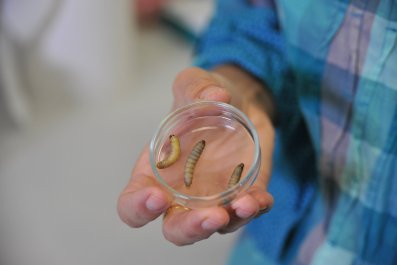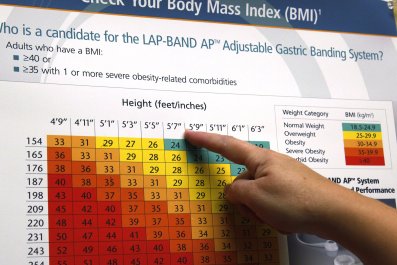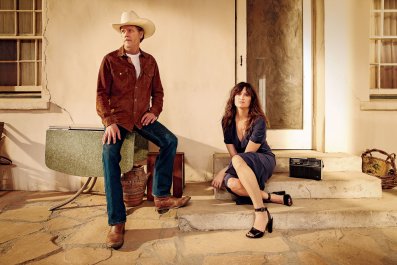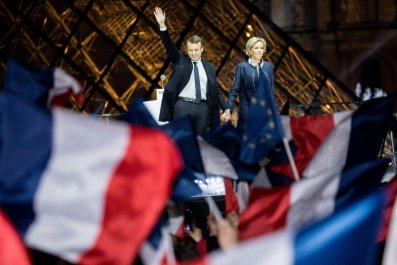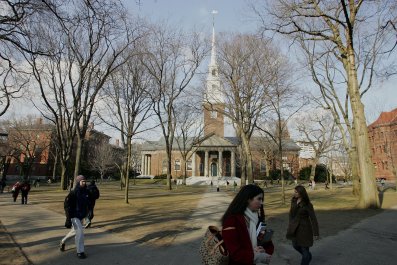Stiff-backed, starched-linen dinners with people you know formally but don't like, grazing on microscopic courses of what tastes like lawn clippings while discussing an upcoming election in politely guarded tones—could anything be more tedious and anxiety-provoking? Actually, yes; The Dinner, the ambitiously sculpted but ultimately exasperating new film from Oren Moverman, rather too vividly recreates all the aforementioned discomfort for viewers—minus the extensive wine list to make it go by less painfully.
Dutch author Herman Koch's 2009 international best-seller, which has already twice been filmed in Europe, follows well-to-do parents gathering to formally discuss a crime committed by their children—only for the meeting to reveal their least civil instincts. Moverman's fussily Americanized adaptation retains the angular moral conflicts of its source material but largely sheds Koch's curt, sour-pickled irony. In its place is a broad, earnest assumption of political gravitas: Amid the competitive sniping, rhetorical grandstanding and historical name–checking of its bourgeois New York quartet at a crimson-lit temple of haute cuisine, the general sense of self-appointed prestige—the booming message that this is A Film for Our Time—is hard to escape. The finer details of what it's saying to or about us, however, stay muffled.
The setup, if little else, is elegantly simple—sticking closely to Koch's text. Two couples, one a little more upmarket than the other, meet for dinner at the kind of multistarred dining establishment where an average shopper's weekly grocery budget is spent on a sparsely furnished plate of pumpernickel soil. If they aren't there for the food, they certainly aren't there for the company either: Cynical history teacher Paul (Steve Coogan) and campaigning congressman Stan (Richard Gere) are brothers with only the thinnest of veils over their contempt for each other; Paul's wife, Claire (Laura Linney), and Stan's more newly acquired partner, Kate (Rebecca Hall), eye each other with a curdled mix of mutual suspicion and understanding of the brittle family politics they must now navigate.
A critical domestic matter has brought them to the table: The couples' respective teenage sons have collaborated on a grotesque act of juvenile delinquency, one that threatens to unravel Stan's political career if brought to the attention of the authorities. How best to handle, or perhaps hide, the truth is the primary topic of conversation. As they consider the options, ethical positions switch fast: No one takes the high ground exactly, but the muddiest moral lows of the situation are very much up for grabs.
It's a premise that may remind some viewers of French playwright Yasmina Reza's savage social satire God of Carnage (2006), and Roman Polanski's arch film adaptation (2011). Moverman's movie, like Polanski's, relocates a very European comedy of contemporary manners to the realm of the East Coast elite; in both, ostensibly civilized discussion of a private matter is turned loudly and poisonously inside out, exposing ugly personal and social prejudices in the process. Moverman may have a keener ear than Polanski for the verbal and behavioral foibles of this elevated American class, yet The Dinner never feels like more than an opportunistic translation: Even when the words are at their most pointed, the political specifics (not least Stan's own allegiances) are blurred for the sake of bland universality.
Moverman could hardly have known in advance that his film would be released during the toxic early months of Donald Trump's presidency; at moments, it speaks fortuitously to America's retrenched hierarchies of class and race. Moverman has unpicked the psychology of America's less privileged to terrifically moving effect in such previous films as Time Out of Mind (2014; also starring Gere) and The Messenger (2009), but this time he dourly deals in concepts rather than characters. While his most blatant attempt to make the material his own—a deranged, cacophonous montage that shoehorns the brothers' conflict into a hallucinatory historical vision of the Battle of Gettysburg, Paul's specialist area of study—falls senselessly flat, a further opportunity for political resonance is squandered.
As focus lurches distractingly from the heated dinner-table debate to a zigzagging network of flashbacks, momentum fatally stalls, while the illustrious ensemble of actors at the film's center never quite gets cooking. Linney, as a kind of Lady Macbeth attired by Banana Republic, and a fevered, awkwardly accented Coogan get the seething showboat roles, but it's the quieter characters who hold your attention: Outside this hideous, Chablis-fueled circle, Stan's softly agitated assistant, Nina (the wonderful Adepero Oduye), hovers with the wary, compelling composure of someone who knows where the bodies are buried. You keep hoping, in vain, that The Dinner will give her a seat at the table.




